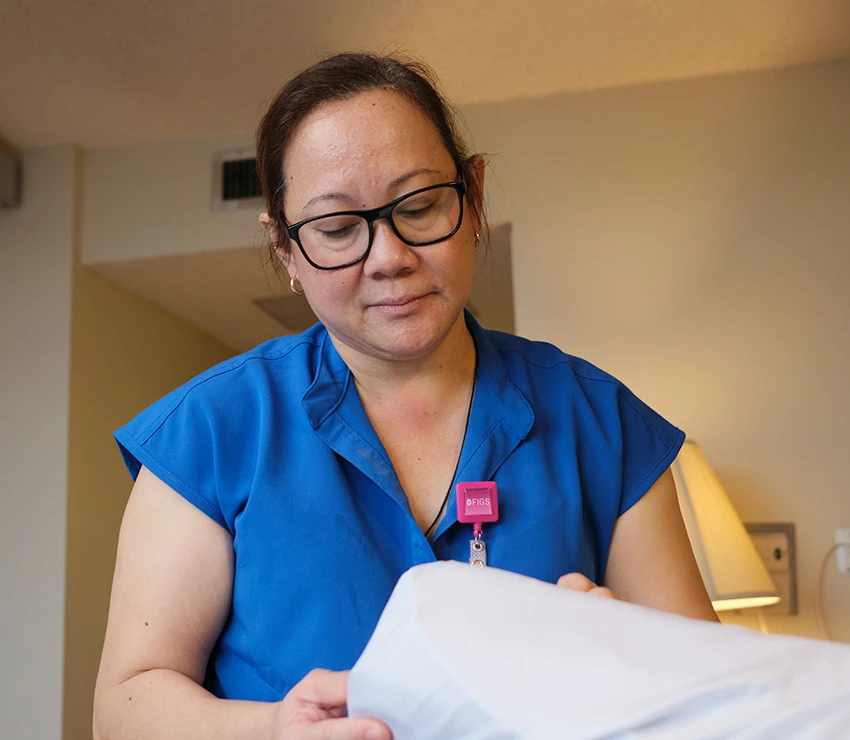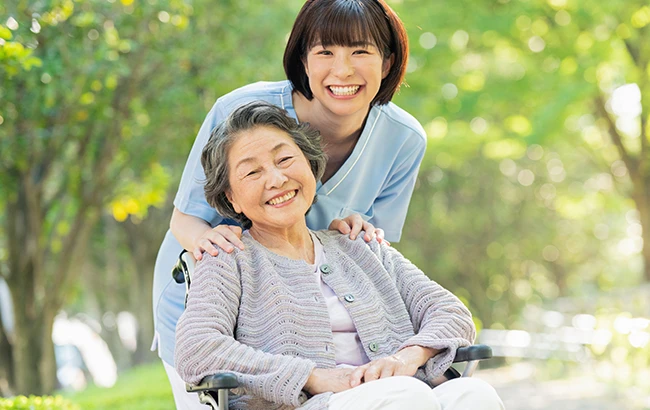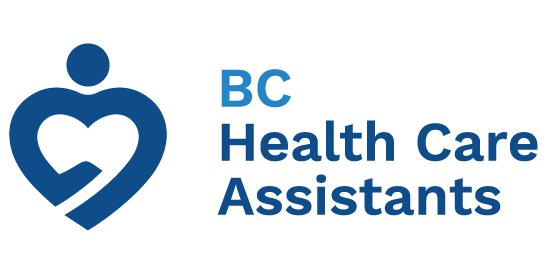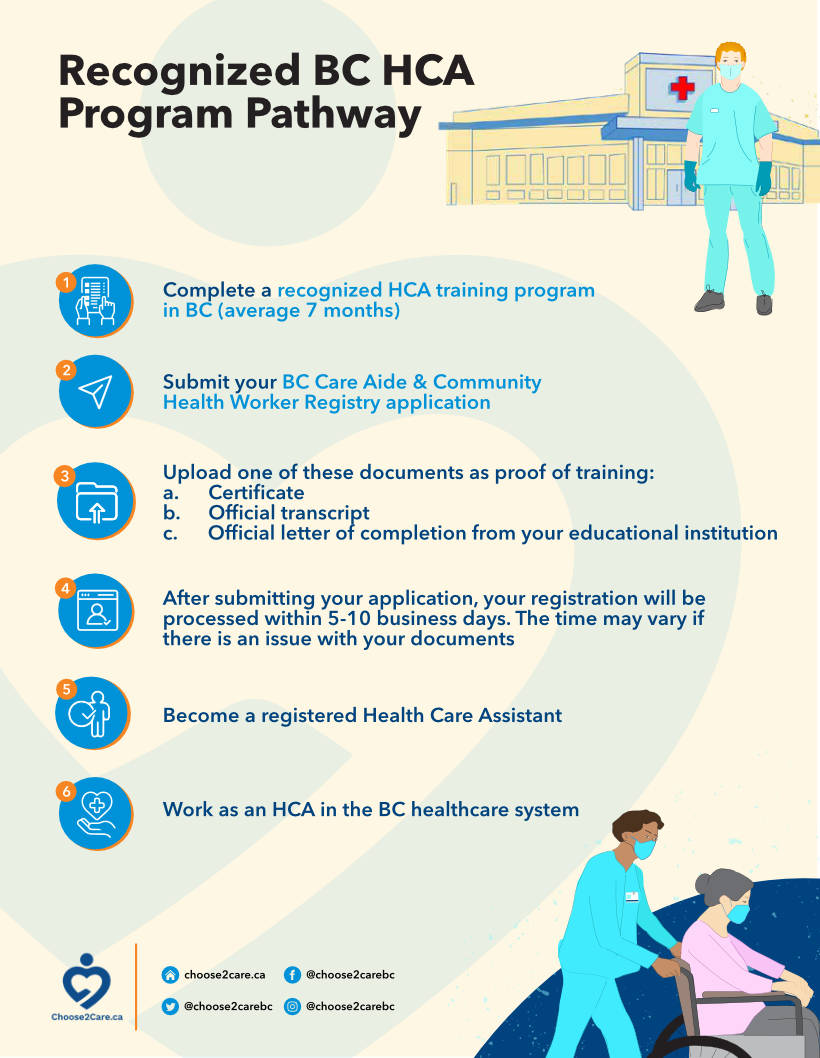Adult Learners


Whether you are making a career change or thinking about coming back to work after a period away, consider a career as a Health Care Assistant. As an HCA, you can truly make a difference in your community, earn competitive wages and benefits, and be a valued member of a healthcare team.
For insight into the experience of other adult learners who have completed an HCA program, watch this video.
Pathways to Registration
Consider integrating into the Canadian healthcare workforce more quickly as a Health Care Assistant.
Depending on your background, there are several pathways to becoming a registered HCA:
- HCA Competency Assessment Pathway (i.e., HCA Competency Assessment & Remedial Education)
*For individuals with previous healthcare training. - Health Career Access Program (HCAP)
- Recognized HCA Program in BC
- Complete all competency assessment components: Computer-based Assessment (CBA) and Simulation Lab Assessment (SLA)
Financial Supports
Several financial support options are available through Health Match BC to help you with costs associated with the registration pathway you choose.
- HCA Bursary Program (HCA Competency Assessment & Remedial Education)
- HCAP Pre-Requisite Stipend
- HCA Training Program – BC Care Providers Association provides free training at select post-secondary institutions for participants who are unemployed, precariously employed, or employed but requiring upskilling
If you need financial assistance to enroll in an HCA program, there are options available. Please contact an HCA education program about available financial supports, or follow the links for more information about loans, scholarships, bursaries, and more:
- StudentAidBC
- Canada Student Grants and Loans
- Adult Upgrading Grant
- WorkBC
- Progressive Intercultural Community Services Society (PICS) offers fully-funded HCA programs for individuals on EI
- North Island College – Evergreen Club Bursary
- Northern Lights College – Health Care Assistant Bursary
- Sunshine Coast Healthcare Auxiliary – Mature Student Bursary

Education
We know that your time is valuable and returning to school while balancing commitments can be a challenge. At approximately seven months, these HCA programs are a good return on your investment, and may even offer flexible delivery options during weekends, evenings and online.
Education Planner BC – Find resources for adult learners & mature students to help you continue building your career.
Health Care Assistant Practice in British Columbia is a free online, self-paced course that provides an overview of information relevant to HCA practice in the province of British Columbia. This 5-hour course develops an awareness of HCA parameters of practice in BC and the different types of healthcare settings where HCAs work. It covers the importance of working collaboratively in the healthcare team and highlights key concepts such as person-centred care, and legal, ethical and professional approaches to practice.
This course is available on the LearningHub.
For more information and a list of other Learning Hub Courses that may be of interest to HCAs, click here.

Nursing Access and Bridging Programs
If you have already trained as an HCA and you wish to advance your studies, you can put your prior learning as an HCA toward other post-secondary programs, such as Nursing Access and Bridging Programs. These programs support the move from being an HCA to a Licensed Practical Nurse, and from a Licensed Practical Nurse to a Registered Nurse. These programs are designed for those with HCA education and experience to receive nursing credentials more quickly.
Employment
The demand for Health Care Assistants continues to grow as an important and necessary role in delivering health care in BC, making it a great career choice.
Browse employment opportunities as a Health Care Assistant (or equivalent role), in both public and private healthcare sectors on our Employment page.
Health Care Assistants work in a variety of healthcare settings including hospitals, continuing care and assisted-living settings, and in the community providing home care.
HCAs are responsible for assisting clients with their mobility, activities of daily living, and personal care. They observe and monitor their clients, and are responsible for completing records and reporting changes and unsafe conditions to their supervisor. HCAs are supervised by nurses and other regulated health care professionals (e.g., doctors, nurse practitioners). Learn more about what HCAs do here.
Acute/Hospital Facilities
Hospital Porter, Dialysis Technician, Unit Clerk, Housekeeper, Screener/Greeter*
Long-Term Care Homes / Assisted Living Residences
Housekeeper, Food Server, Laundry Attendant, Dietary Aide, Cook, Health Care Support Worker, Screener/Greeter*
Community-based
Private in-home Caregiver, Home Health Companion, Health Care Support Worker
Other
Community Support Worker, Mental Health Worker, Doula
Adult Learners FAQ
1. How much time does it take to complete an HCA program in BC?
Health Care Assistant training varies from school to school, but the average duration is seven months. Most HCAs graduate, register, and start working in less than a year.
2. Where do I search for available HCA programs to enroll?
To become a registered Health Care Assistant in British Columbia, you must complete a recognized Health Care Assistant program using the provincial curriculum. Click here to view a list of recognized health care assistant education programs in British Columbia.
You can contact colleges to obtain registration requirements, course length, format, and tuition costs. All HCA programs will provide clinical placements to help students gain hands-on experience.
3. What financial supports are available to help me pay for the HCA program?
Several financial support options are available through Health Match BC to help you with costs associated with the registration pathway you choose, including the HCA Bursary Program and HCAP Pre-Requisite Stipend.
If you need financial assistance to enroll in an HCA program, there are options available. Please contact an HCA education program about available financial supports, or follow the links for more information about loans, scholarships, bursaries in the Financial Supports section on this page.
4. Where could I work as a registered HCA?
HCAs work in various settings, including continuing care homes, specialized dementia care units, assisted-living residences, group homes, acute care hospitals, or assisting clients in their homes. You could work in publicly funded or private settings. Please refer to the What is a Health Care Assistant page for more information about the typical work settings and duties of HCAs.
5. What other professions in health care could I move into after HCA?
Entering the healthcare field as an HCA can open up more opportunities. After training as an HCA, if you wish to advance your studies, you can put your prior learning as an HCA toward other post-secondary programs, such as Nursing Access and Bridging Programs. These programs support a move from being an HCA to a Licensed Practical Nurse, and from a Licensed Practical Nurse to a Registered Nurse.
6. Am I too old to work as an HCA?
According to the WorkBC, the average age group of Health Care Assistants in BC is 25–54 years old. Although there is no age limit to work as an HCA, you must be physically able to carry out the position’s duties, which includes assisting clients with mobility, positioning, mechanical lifts, and transfers.
Choose a Career in Providing Care
Site Map
Privacy Policy
Terms Of Use
Contact Us

